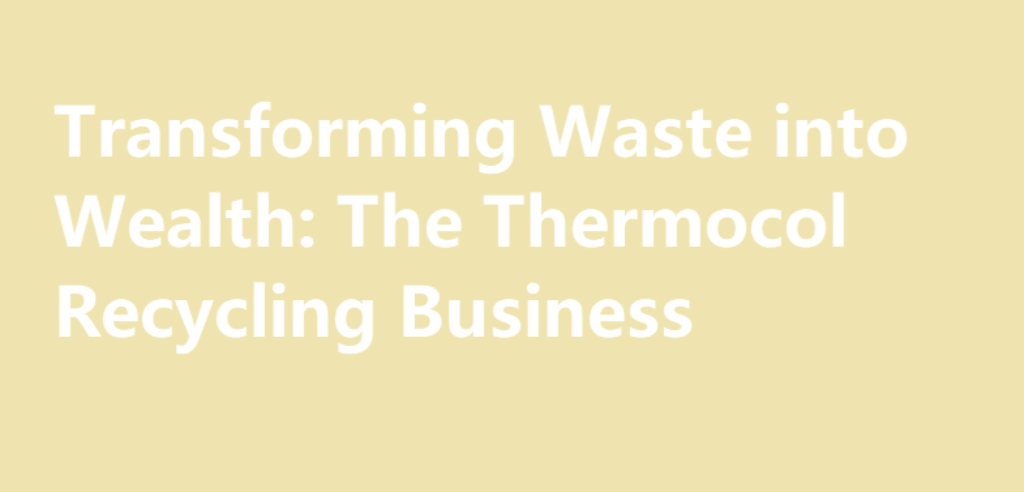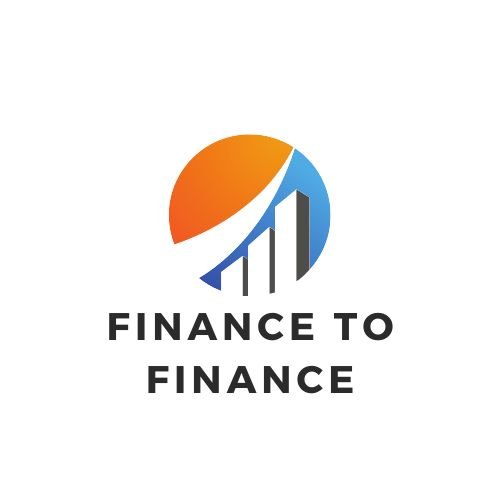
Transforming Waste into Wealth: The Thermocol Recycling Business
Thermocol Recycling Business: Environmental issues are increasingly addressed by thermocol recycling. Online and in-store consumer products are protected by thermocol packaging. India’s waste problem is exacerbated by thermocol, which is part of our daily lives like plastic. In packaging, storage, construction, transportation, electronics, and aerospace, thermocol is essential.
In major Indian cities, thermocol waste production ranges from 0.5 to 1 tonne per day, accumulating 300 tonnes annually, peaking during holidays. Despite being less harmful than plastic, thermocol requires environmental protection. Improper thermocol waste disposal pollutes waterways and releases carcinogenic fumes when burned in landfills.

Thermocol and Products Effect
Its accumulation damages land, making thermocol waste dangerous. It cannot decompose or integrate with the soil because it is non-biodegradable. To remove it, incineration releases toxic gases like carbon monoxide, endangering the environment and humans. Thermocol prevents soil aeration and interaction with essential minerals and nutrients. Throwing thermocol waste in water harms aquatic ecosystems and life by blocking sunlight and oxygen. Thermocol production uses harmful chemicals, further causing environmental issues. As thermocol waste grows, it takes up valuable land that could be better used.
What is Thermocol?
Polymers, which pollute air, water, and soil, make up thermocol. Regular thermocol (polymer) exposure has been linked to viruses, cancer, compromised immune systems, and other diseases. People often burn thermocol waste, polluting the air.
A Thermocol Waste Recycling Plant can solve this urgent problem. Electric melting can treat thermocol waste. Since thermocol is non-biodegradable and has a long shelf life, it can be recycled multiple times, solving this environmental problem. We will explain the business plan, benefits, process, and cost of an Indian Thermocol Waste Recycling Plant.
How to Start a Thermocol Recycling Business?
Before starting a business, you must understand all aspects. Starting a thermocol recycling business requires careful planning and industry knowledge. A well-structured business plan secures future financing and positions the business to take advantage of government industry promotion and investor incentives.
Thermocol Waste Recycling Business plan:
Market Analysis: Thorough market research is essential before starting a business. This phase requires visiting recycling plants to learn their processes and technologies. Create a questionnaire and consult experts. Reading recycling plant articles, reports, and data will reveal the project’s pros and cons, thermocol types, recycling processes, demand, and selling prices.
Industry Location: Establishing a thermocol recycling business starts with a location. The chosen space must be secure, spacious, and accessible for thermocol waste, product storage, machinery setup, and more. Space requirements should be considered, and locations outside city limits may have lower land costs and fewer urban disturbances. Power and water should be available.
Registration/License:
A thermocol recycling plant needs several licences and registrations:
MSME Registration: Micro, Small, and Medium Enterprises must register to receive government benefits. Obtain registration from the nearest District Industries Centre.
Before starting business, apply for municipal/city corporation/development authority or district industrial office licences.
Factory/Small Industry/Business Licence: The district’s Labour Department (Chief Inspector of Factories – CIF) issues this licence, which requires worker registers and formalities.
Get a Safety Certificate Department NOC: Safety is paramount in any industry. The Fire and Safety Department requires a Non-Objection Certificate (NOC) within three months of business startup. This includes fire prevention and firefighting equipment information.
Factors to Consider for Starting a Thermocol Recycling Business
Raw Material:
Municipalities and contractors separate metal, plastic, thermocol, and other recyclables from domestic and commercial waste and sell them. Contact local waste warehouses for bulk thermocol waste. Keeping multiple warehouses connected ensures thermocol waste supply.
Manufacturing Method:
Thermocol waste is inspected and cleaned of paper, tape, stickers, and other foreign particles. An extruder machine’s barrel hopper melts the pieces after shredding to remove dirt and dust, forming long threads during pelletization. After a cutting machine processes these threads into fine grains, they are bagged and sold for plastic product production.
Machinery and Tools:
The thermocol recycling business needs 3,500 to 4,000 square feet, with 2,500 to 3,000 covered. Thermocol waste must be shred and melted into grains with an extruder. These machines are automatic or semi-automatic and cost 500,000–1,000,000 INR. Electrical connections should also match machine capacity.
Finished Goods Market:
Recycled product markets are essential for business success. Polystyrene (PS) granules from thermocol recycling are used to make bottles, containers, glasses, pens, hangers, cans, baskets, and more. Contact markets, large suppliers, wholesalers, and distributors of plastic granules to sell PS or polystyrene products. Promote your products on websites and e-commerce platforms to expand your reach, and consider international exports.
With the rise of online product orders, thermocol demand has increased. Packaging often uses thermocol to protect products for transport. This trend offers thermocol recycling a big chance.
With an investment of INR 15–20 lakhs, starting a thermocol recycling business is affordable. Adjust your budget to meet your needs.
Easy Business Startup:
A thermocol recycling plant requires little space and thermocol scrap. Installation of machinery and plant components in available space simplifies startup.
The thermocol recycling industry has low competition, making it easy to enter. To succeed, gather expert information before starting operations.
Conclusion
The potential for transforming waste into wealth through the thermocol recycling business is both promising and environmentally responsible. By embracing innovative recycling techniques and sustainable practices, individuals and businesses can not only reduce waste but also generate significant financial returns. This venture not only benefits the bottom line but also contributes to a greener and more sustainable future for our planet. So, take the first step towards turning waste into wealth and embark on this rewarding journey of thermocol recycling.






